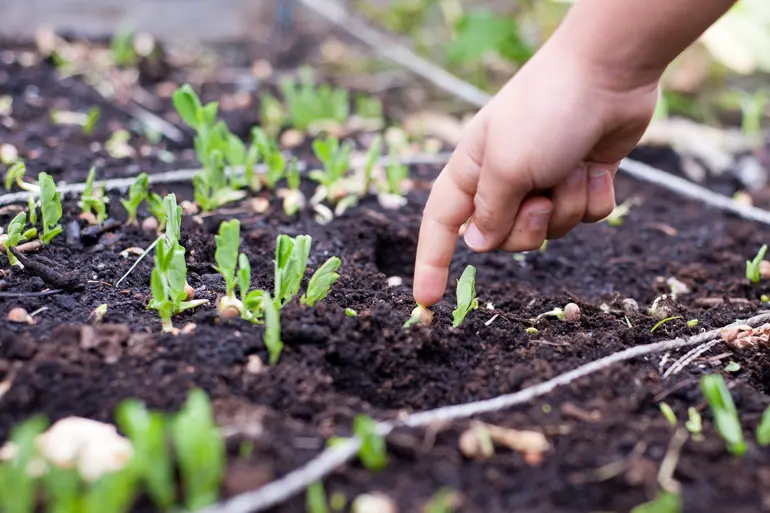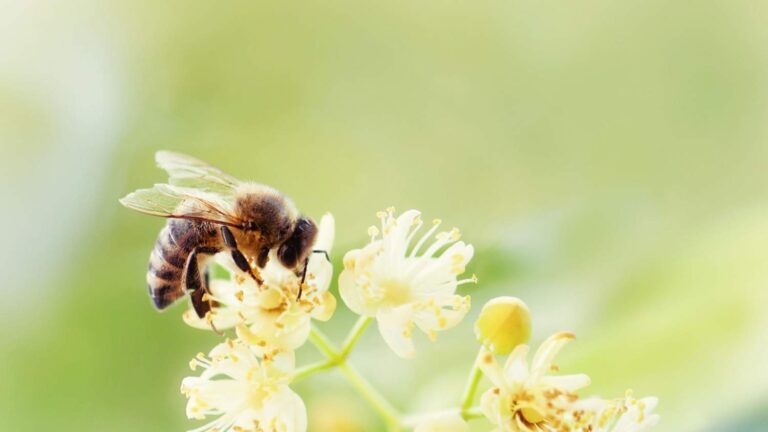Seeds are a crucial factor in agriculture since they lay the foundation for your farm’s yield and productivity. That’s why it’s crucial to get it right.
One of the most effective ways to ensure the success of your crops is by using open-pollinated seeds, which have become increasingly popular among farmers.
But why are they so popular among other types of pollinated seeds? Let’s take a closer look at what open-pollinated seeds are and what sets them apart.

What are open-pollinated seeds?
Open-pollinated seeds are special types of seeds that get pollinated by natural mechanisms like wind or insects.

They can produce plants with similar traits as the parent plant, which means that farmers can collect and plant these seeds in the future. Open-pollinated seeds are usually linked with heirloom varieties that have been grown for many generations.
Reasons why open-pollinated seeds play a crucial role in promoting sustainable agriculture
1. Possesses greater genetic diversity compared to other types of seeds
Genetic diversity is super important for sustainable agriculture, and open-pollinated seeds help keep it intact.
Unlike genetically modified seeds, open-pollinated seeds aren’t messed with in a lab.
This allows natural pollination to happen, which makes plants with a wider variety of genetic traits. That means they’re better able to handle changes in the environment, like pests or weather issues.
It’s especially important to have a diverse range of genetics when you’re growing just one type of crop over and over again, like on big farms.
If all the plants are the same genetically, they’re more likely to get damaged. This can lead to a lot less food being grown, or even a total crop failure. But if farmers use open-pollinated seeds, they can keep a variety of traits in their crops, which helps make them stronger and more productive.
The diversity of these crops doesn’t just help them grow better, it can also make them healthier and taste better too! Open-pollinated seeds can create plants with lots of vitamins and minerals, which is good for both people and animals.
Plus, having different genes in the plants can mean they have different flavors and textures. This can make meals more exciting and fun to eat.
All in all, open-pollinated seeds are really important for keeping farms sustainable and producing lots of yummy food. They help farmers grow crops that can handle whatever nature throws their way, while also providing all the nutrients and flavors that people and animals need.
2. Exhibits greater adaptability and is capable of thriving in specific local conditions
Another reason why open-pollinated seeds are important for sustainable agriculture is their adaptability.
Unlike genetically modified seeds that are developed to have specific traits, open-pollinated seeds have a diverse genetic makeup that allows them to adapt to different environmental conditions.
Over time, these seeds have been naturally selected to thrive in their specific local conditions, making them well-suited for sustainable agriculture.
They have developed resistance to pests and diseases, as well as the ability to withstand extreme weather conditions such as drought or flooding.
This means that farmers can rely on these seeds to produce crops without the need for synthetic fertilizers or pesticides, which can harm the environment and human health.
In addition, the adaptability of open-pollinated seeds makes them a great choice for organic farming. Organic farmers rely on natural methods to protect their crops and maintain soil health, and open-pollinated seeds fit well into this approach.
They are able to grow in diverse agroecological systems, such as intercropping, which can increase biodiversity and reduce the need for chemical inputs.
3. Assists farmers in preserving seeds for future cultivation
Seed saving is an important practice that has been used by farmers for centuries.
With open-pollinated seeds, farmers can easily save the seeds from the crops they have grown, and replant them for the next growing season. This not only saves money on buying new seeds, but it also allows farmers to maintain the genetic diversity of their crops.
By saving seeds from the strongest and healthiest plants, farmers can gradually develop their own seed bank that is specifically adapted to their local growing conditions.
This can lead to the development of new and unique varieties of crops that are well-suited to the local environment.
Seed saving can also help preserve heirloom varieties that have been grown for generations. These varieties are often not commercially available and may be at risk of extinction, making their preservation through seed saving crucial for maintaining genetic diversity.
4. Helps farmers in saving money due to their cost effectiveness
The cost-effectiveness of open-pollinated seeds makes them particularly important for small-scale farmers who often have limited financial resources.
Small-scale farmers can save money by reusing open-pollinated seeds from previous harvests, rather than purchasing new seeds each year.
This promotes self-sufficiency and sustainability, as farmers do not have to rely on costly external seed suppliers.
In addition, open-pollinated seeds can be easily shared between farmers and communities, which can further reduce the costs associated with seed acquisition. This sharing of seeds can also lead to the preservation and exchange of local and traditional varieties, which can be particularly important for maintaining cultural heritage and promoting food sovereignty.
The affordability of open-pollinated seeds is a big advantage for small-scale farmers, as they are less expensive than hybrid or genetically modified seeds.
Farmers can save seeds from previous harvests, which eliminates the need to buy new seeds every year.
This makes them more self-sufficient and sustainable, as they do not have to rely on expensive seed companies. It allows farmers to focus on developing productive farms that can provide food security for their families and communities.
5. Gives farmers control over their food system
Open-pollinated seeds are a key element of food sovereignty because they allow farmers to maintain their independence and control over their own food system.
With open-pollinated seeds, farmers can develop their own seed banks and adapt their crops to local conditions without having to rely on external seed suppliers.
This means that farmers can grow crops that are suited to their unique environment and cultural practices, without having to rely on large corporations that control the seed market.
As a result, they can maintain their independence and control over their own food systems.
Additionally, open-pollinated seeds support the preservation of traditional knowledge and cultural practices related to food production.
Finally
It is important to note that there are different types of seeds, such as hybrid and genetically modified seeds, which have their own unique characteristics and benefits. However, many experts believe that open-pollinated seeds are particularly beneficial for sustainable agriculture and small-scale farming due to their adaptability, cost-effectiveness, and ability to be saved and used year after year.
